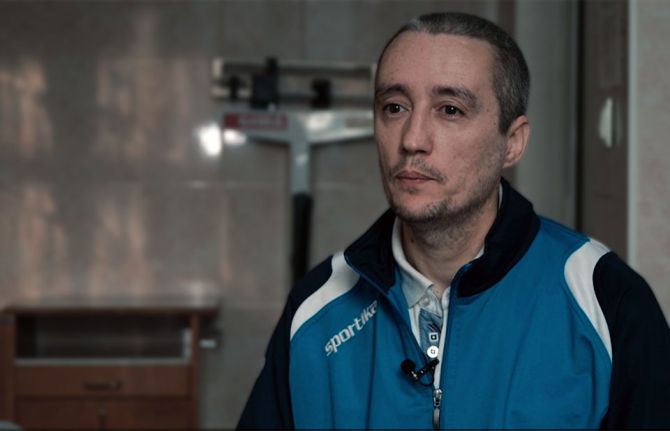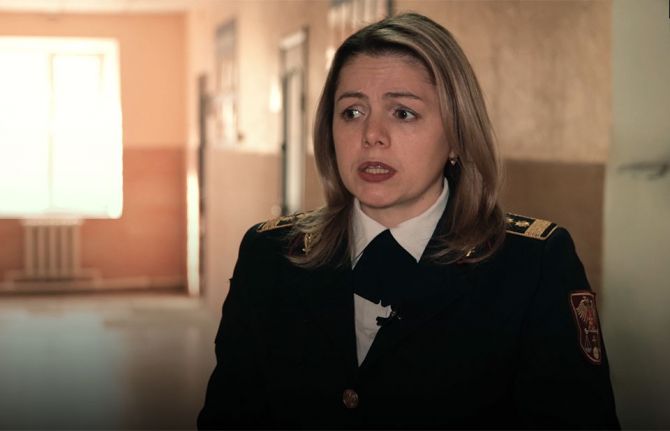



Feature Story
Moldova expands harm reduction services to all prisons
05 May 2023
05 May 2023 05 May 2023Alexander Godin moves through a number of locked doors escorted by a guard to prison 16’s pharmacy. This is part of his daily routine. He comes to get his medicine – a syrup-like dose of methadone. Methadone is an opioid agonist therapy (OAT) to help people overcome withdrawal symptoms, decrease heroin dependence and prevent HIV infection from infected needles.
Since 2000, a few prisons in Moldova offered such harm reduction services.
Now all do.
“I have been on methadone substitution treatment for 10 years,” said Mr Godin. His family urged him to take advantage of such services so he could get healthy again.
“For years I used drugs and opioids and for this, money was needed so problems began among my family,” he said. Since he has been on the programme, he feels much better.
Any new prisoner to the country’s 17 penitentiaries sees a psychiatrist, a doctor and if needed is offered to join a treatment programme. Comprehensive harm reduction services not only include drug dependence treatment but also needle syringe exchange and HIV testing and treatment. HIV prevalence is 11% among people who inject drugs in Moldova vs 0.36% among the general population.
They are one of the most affected groups in the country.
For Maria Potrîmba Head of Infectious Diseases at prison 16 (Pruncul) helping prisoners stave off drugs has positive knock-on effects.
“If a patient is on this substitution treatment the person is more aware of consequences and will more likely adhere to their other treatment,” she said.
The prisons also make sure to provide clean syringes with a regular pick-up every two days carried out by volunteer prisoners.
The head of medical unit at prison 13 (Chisinau) believes harm reduction services are important for both inmates and prison employees.
“The volunteers are all prisoners and the vast majority of them are also people who have been treated for communicable diseases like HIV or hepatitis or tuberculosis,” Oleg Costru said.
Moldova has committed more resources to the prison programme over the years. “In the beginning, when these services were developed, they were actually financed from external sources,” said Irina Barbîroș, head of the medical department at the national prison administration. “Over the years, the state assumed its commitment and took over the financing of these services from the state budget.”
UNAIDS, UNODC and WHO have been long-time supporters of expanding these services to all prisons. Currently, according to Harm Reduction International, only 59 countries globally provide OAT in prisons.
This, even though harm reduction has been proven to not increase the number of people with drug dependency but rather provide personal and public health benefits.
Svetlana Plamadeala, UNAIDS Moldova country director, has seen the pilot projects gain traction in the country and is quite proud of the success of the nationwide coverage.
“It is really about putting people in front and people at center as well as taking on a solid public health approach,” she said. For her, to end AIDS, protecting the health and human rights of people who use drugs is key. “It is about equalizing.”



